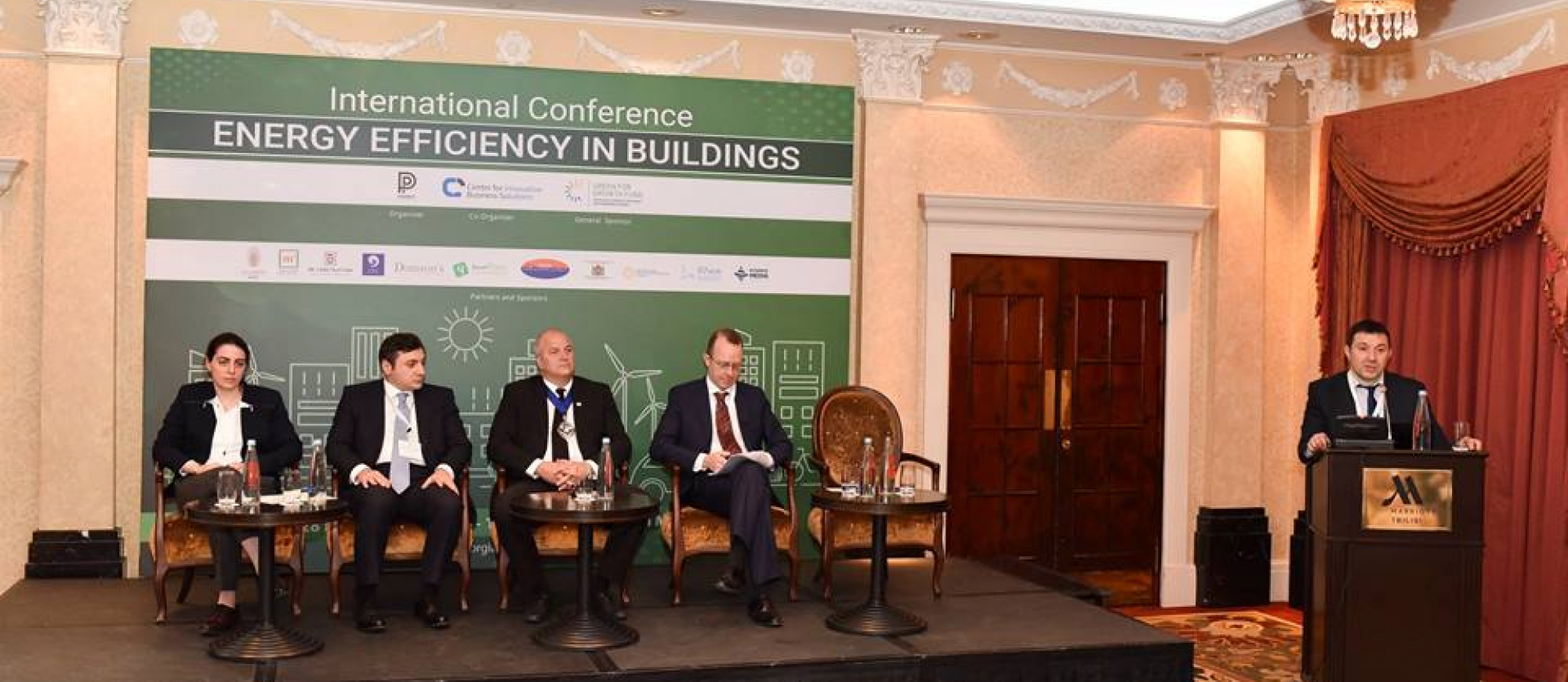As part of the Association Agreement with the European Union, Georgia committed itself to joining the European Energy Union in accordance with the relevant EU directive that was signed into Georgian law. The Directive on Energy Efficiency of Buildings aims to help increase energy efficiency in buildings, which will reduce greenhouse gas emissions, as well as have many other positive effects, such as creating jobs in the construction sector, development of technologies and innovations, reducing air, water and soil pollution, improving health and comfort of the population and reducing energy consumption costs.
“We will present various regulations based on our current action plan. Ultimately, our aim is to obtain zero-energy buildings by 2028. In this case, we are talking about new buildings which will be constructed in the future,” states the head of the Spatial Planning and Construction Policy Department of the Ministry of Economy, Davit Gigineishvili.
Based on the aforementioned regulations, all new buildings will have to be close to zero-energy after a certain date. Foremost of all, this will apply to public buildings. A zero-energy building is one that has a very high energy efficiency indicator. Zero or very low-demand energy requires the presence of renewable energy sources on site or nearby.
The work that Georgia has ahead of it for the next 10 years is already been carried out in Estonia right now. The Tallinn example was subject of the Estonian firm ProAdvice’s representative Constantine Gruber’s presentation at the inaugural international Energy Efficient Construction conference, which was organised by Property Georgia on 28 March. According to Mr. Gruber, state support enabled renovation of 1000 buildings in the country in the space of less than 10 years. The façade makeover programme funded the relevant works by up to 20,000 EUR for each building.
Conference participants discussed all areas of energy efficiency. Matthias Hitzel of the German firm MACS Energy and Water stated that heating and air conditioning in buildings accounts for 30% of energy use in Georgia. In both cases, low-cost and low-quality products are mainly used in buildings. According to Mr. Hitzel, the absence of legislation on energy efficiency hinders proper development of this field in Georgia. He further statet that a relevant awareness-raising campaign ought to be carried out across the country.
Lloyd Stevens, Director at the Green for Growth Fund (GGF) advisor firm Finance In Motion, also addressed the subject of raising awareness: “Promotion of energy-efficient activities in construction enables GGF to support sustainable development of the construction sector in the region. We are delighted to support this conference, which highlights the importance of the aforementioned activities and brings together all the relevant economic and political players in the field of development of energy efficiency. The Georgian real estate sector needed such an initiative,” stated Mr. Stevens.
The GGF portfolio was worth 77 million EUR in 2018 alone. About 227,000 KW of energy has been saved and CO2 emissions have been reduced by 48,000 tonnes as a result of this funding.
The role of the European Bank for Reconstruction and Development (EBRD) in funding green projects in Georgia must also be highlighted. Between 2006 and 2018, EBRD invested a total of 778 million EUR in such projects, allowing energy savings of 156,000 KW per year to be made, and CO2 emissions to be reduced by 186,000 tonne per year.
The World President of the International Real Estate Federation (FIABCI) Assen Makedonov also spoke about the significance of energy efficiency with regards to improving the environment. According to the study conducted by the Global Alliance for Buildings and Construction (GABC), the construction sector is responsible for 20% of global CO2 emissions, 60% of which are accounted for by electric and heating systems: “Construction consumes more energy than any other sector. The rate of energy consumption grows parallel to population and urbanisation growth. Therefore, the subject of this conference is of great importance to us. Energy efficiency provides us with many economic, social and environmental benefits,” stated Mr. Makedonov.
An interesting presentation was also delivered by Arsen Karapetyan, expert on housing policy and multi-apartment building management at UNDP Armenia. “Over the last few years, energy efficiency in construction has become an important issue which provides benefits for millions of people across the world,” stated Mr. Karapetyan.
Energy efficiency represents a challenge for all players on the international construction and real estate market. EU countries are currently in the process of adopting new standards, aiming for a 20% reduction in energy consumption by 2020 and 30% by 2030.




